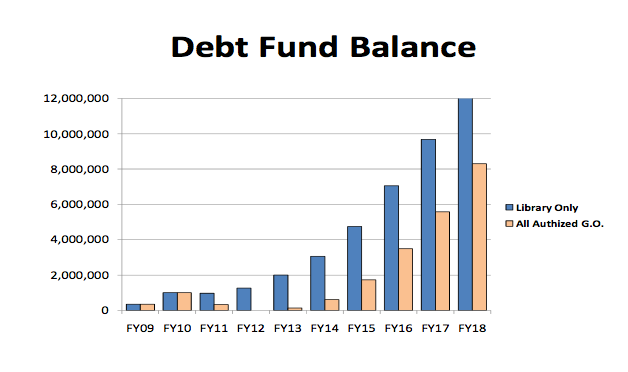Chapel Hill’s AAA bond rating is noteworthy. The care our elected folks have taken to maintain it over a decade laudable. But is it fair to say, as Mayor Mark Kleinschmidt did yesterday, “it is almost, but not quite, as rare for a town our size to have a AAA rating by Standard & Poor’s and Moody as it is for Clemson to win in the Dean Dome”?
Well…
As one municipal bond specialist noted, today’s ratings aren’t quite the same as a decade ago:
Since early last year [2009], the number of “AAAâ€-rated localities has more than doubled, according to a newly released Standard & Poor’s report. Over the last 1 ½ years, despite the withering economic downturn, changes in rating criteria combined with a number of first-time rated “gilt edge†communities served to produce an increase of 86 communities now rated in the top “AAA†category.
…
Of the newly rated “AAAs,†S&P raised 65 from the “AA†category, with the remaining 21 representing communities never previously rated.
…
Traditionally, rating agencies have been tightfisted in their willingness to assign “AAA†ratings to municipal debt. Now, 169 local governments carry S&P’s top rating, up from 70 in late 2006.
Jay H. Abrams, FMS Bonds, Inc.
Standard & Poor’s (S&P) isn’t the only rating agency to review and relax the conditions for awarding a AAA rating:
In early April 2010, Fitch Ratings overhauled the way it assigns grades to the credit quality of state and local governments, recalibrating ratings on 40 states, the District of Columbia, the Virgin Islands and Puerto Rico. The move affects some 38,000 municipal bond issues. The rating agency’s wholesale recalibration is in part recognition that municipalities were being held to a higher standard than corporate and sovereign debt. Moody’s Investors Service also started to recalibrate its universe of municipal bond ratings in mid-April 2010, beginning with changes for 34 states and Puerto Rico.
Securities Industry and Financial Markets Association,2010
So, yes, the Town has managed to hold onto its AAA rating another year but the quality, so to speak, of today’s rating is not necessarily equivalent to that of the ratings awarded 2 or more years ago.
As far as municipal bond ratings, recall that there are three dominant rating agencies (CRAs) who manage the market for ratings (little competition), they routinely make huge mistakes (all 3 rated Enron investment grade right up to the collapse, all 3 rated many of the bundled mortgage securities highly right up to their failures), they are slow to adapt and have a poor record of understanding how to value new trading instruments (like the ARRA Build America Bonds [BABs] our Town just issued).
As I noted previously (most recently here) Chapel Hill’s Town Council has maxed out the credit card. The debt ceiling they have adopted is a reflection of previous borrowing decisions – not a prudent fiscal analysis of what is reasonably sustainable with our current tax-base.
One tool a concerned citizen can use is the Municipal Securities Rule-making Board’s (MSRB) relatively new
Electronic Municipal Market Access (EMMA) system – an analogue to the SEC’s EDGAR – to track filings.
Chapel Hill’s recent $20.1 million filing, which includes the $16+ million for the Library expansion, is here.
